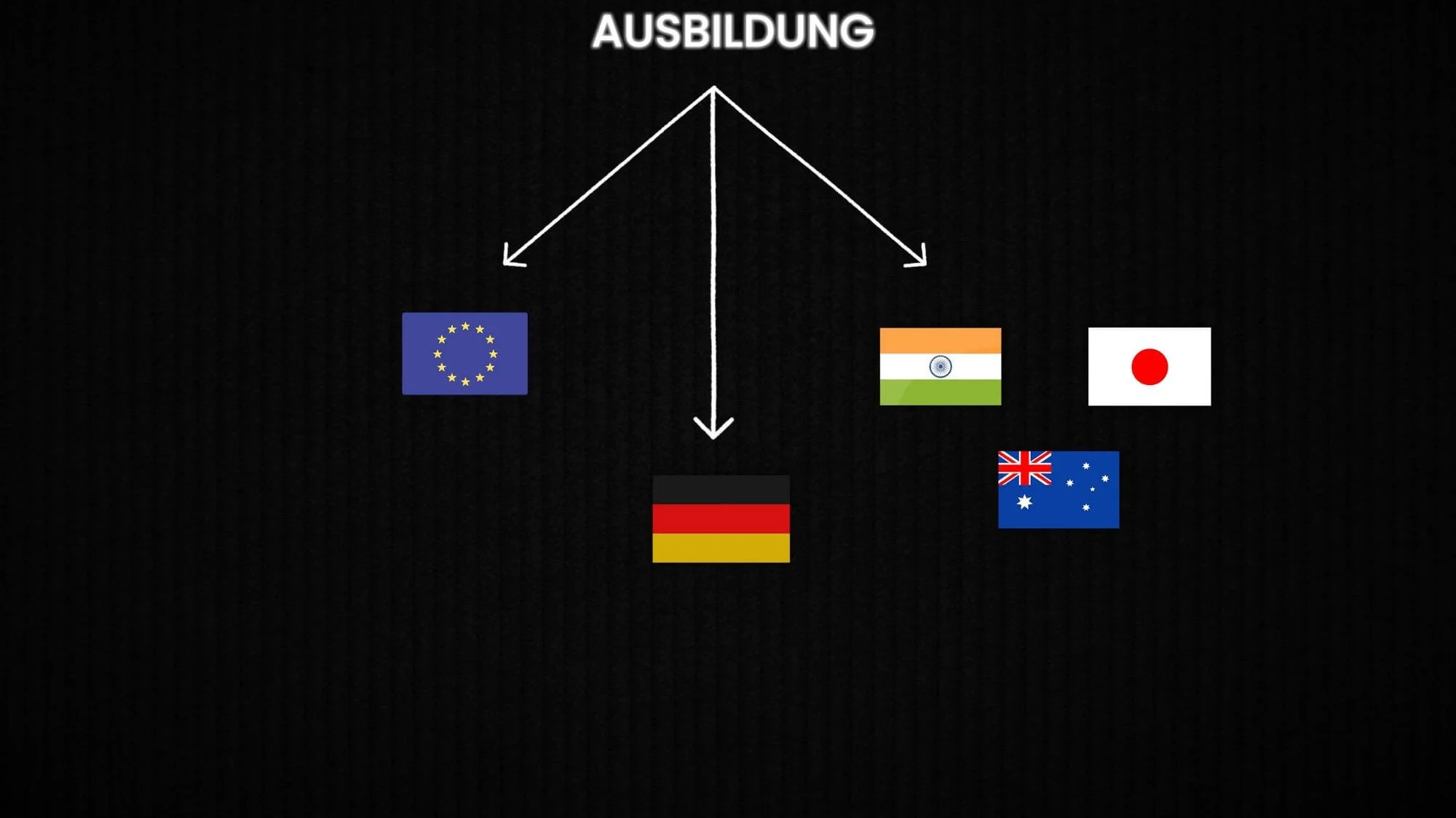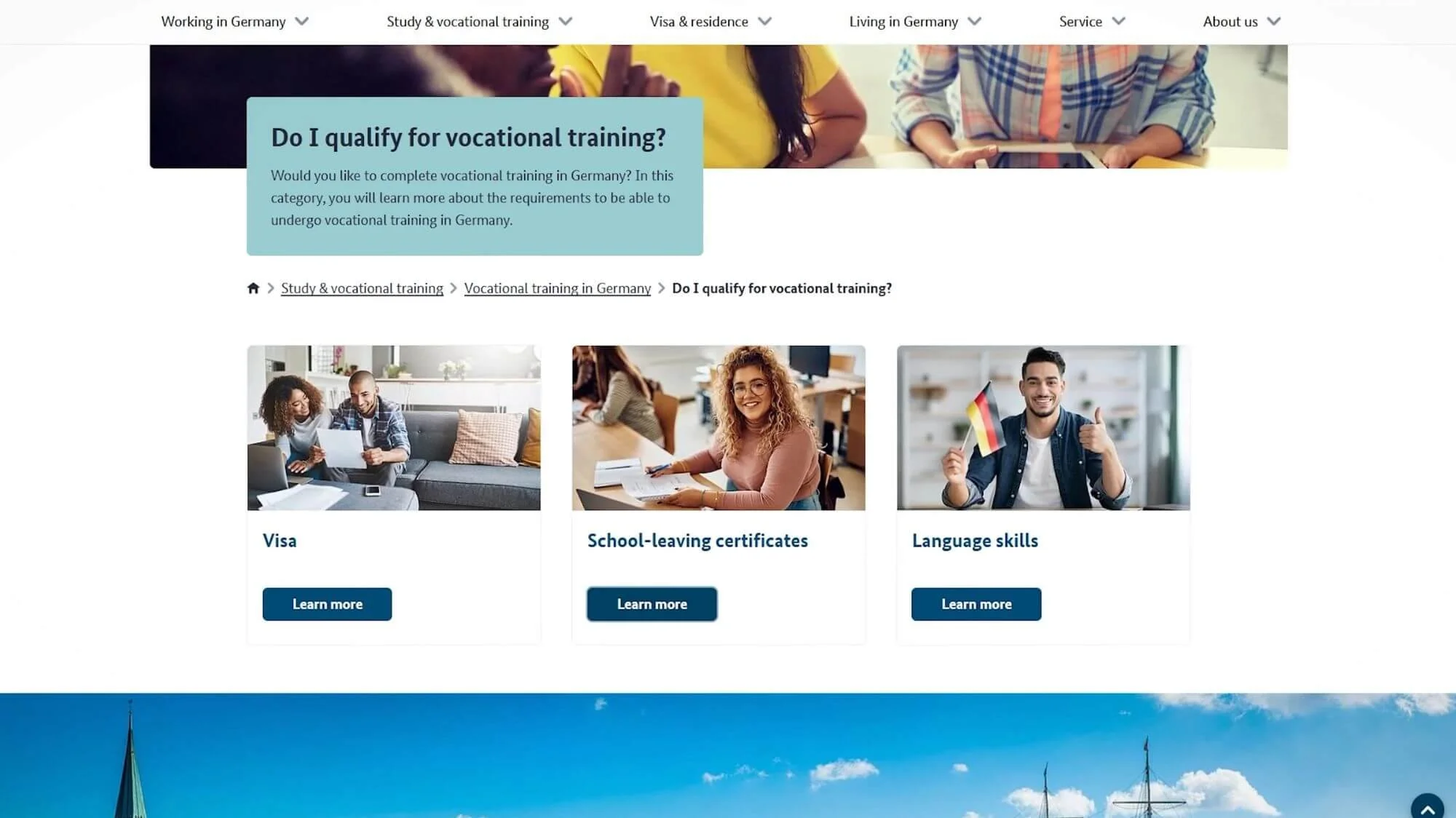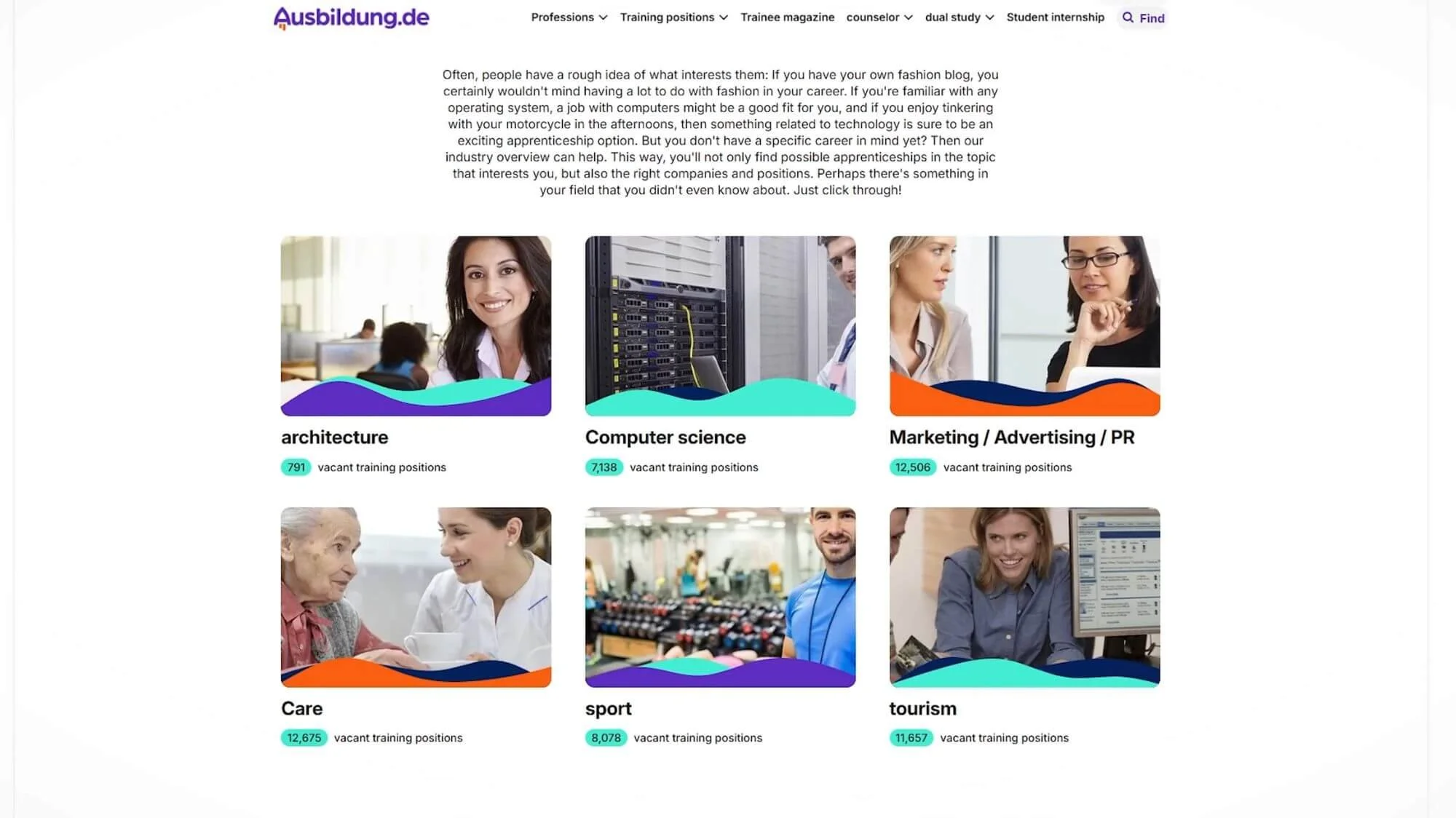Ultimate Beginner Guide for Ausbildung (Vocational Training) in Germany | 2026
What if I told you there’s a program in Germany, where you can study for free, get paid while doing it, and is open to everyone, even if you’re from outside the EU? That program is called Ausbildung and it’s one of the most practical ways to come to Germany and actually build a successful career here. So in this article, I will explain everything you need to know about Ausbildung in Germany, who it’s for, how much money you can earn, and how to apply.
What is Ausbildung?
Ausbildung is a vocational training program in Germany that combines theory knowledge with practical experience. Here’s how it works: for about three days a week, you’ll work at a company, and for the other two days, you’ll attend a vocational school. The company pays you a monthly stipend throughout the entire training period, and once you complete your final exam, you receive a vocational certificate that’s officially recognized across Germany. In most cases, the same company where you trained will offer you a full-time job.
Benefits
Ausbildung is such a great program. First of all, it’s super cost-effective. Why? Because there are no tuition fees, and you earn while you learn. When you do your Ausbildung, you’re not just sitting in a classroom, learning skills, you’re working at a company and getting paid for your time. This isn’t like unpaid internships, this is proper paid training.
Now, how much you earn depends on the profession you choose, the company you’re working for, and even the region in Germany. Like in a normal job, bigger companies and high-demand industries usually pay more. But in general, you can expect a monthly stipend of between €700 to €1,200 while you’re still in training. That’s usually enough to cover basic living expenses.
And once you finish your Ausbildung, you can earn between €1,800 to €3,800 per month. So not only are you saving on tuition fees, but you’re also stepping straight into a well-paying job.
Ausbildung is available in over 350 professions, everything from IT, healthcare, and business to hospitality, and nursing. Whether you want to become a software developer, a dental assistant, a car mechanic, or an electrician, there’s an Ausbildung for it.
Germany is currently facing a major shortage of skilled workers in many sectors and Ausbildung programs are designed specifically to fill this gap. So your chance of getting hired immediately after your training is pretty high.
Another big benefit of doing an Ausbildung in Germany is that it’s much easier to get a visa compared to a regular study visa. Because Ausbildung is considered an employment-based program, not a traditional academic course. And since you get paid by the company, you don’t need to show a blocked account or prove you have large amounts of money in savings to support yourself.
And it's not just learning and working. You also get one full month of paid holidays each year. So you’re not just working non-stop, you do get time to rest, travel, or go back home for a visit if needed.
And eventually, Ausbildung opens the door to long-term residency in Germany. And if you continue working, pay your taxes, and meet the language and residency requirements, you can apply for German citizenship.
Requirements
Who can actually apply for an Ausbildung in Germany? The good news is, it’s open to everyone. Whether you’re a German citizen, an EU national, or from a non-EU country—you can apply for Ausbildung, as long as you meet the basic requirements.
One of the basic requirements is a high school certificate or diploma that’s considered equivalent to the German Hauptschulabschluss or Realschulabschluss. That means, you should have completed at least 9 or 10 years of schooling, but having more than that definitely improves your chances. Even if you’ve done a Bachelor’s or Master’s, you can still apply, though you may be seen as a bit overqualified.
There’s no official age limit, but you do need to be at least 16 years old. That said, most companies prefer applicants who are 18 or older since they’ll be able to legally sign contracts on their own.
To the most important requirement: German language skills. This program is not in English. Your theory classes and on-the-job training will all be in German. That’s why you’ll need at least B1 level German to be eligible. And, some professions especially in healthcare, nursing, or customer-facing ones, might even require you to have B2 or C1.
But unlike applying for a job, you don’t need any prior work experience. Ausbildung is meant for people who are just starting out. The company and the vocational school will teach you everything from scratch. So as long as you meet the age, language, and education criteria, you’re good to go.Once you know you meet the requirements, here’s how to actually start your journey.
How to Apply?
1. Choose the Right Field for You
Now, to get started with Ausbildung, the first step is to figure out which field you want to go into. There are over 300 Ausbildung professions in Germany, so take your time and choose something that matches your interests, strengths, and long-term goals.
Think about it like this:
What subjects did you enjoy in school?
Do you like working with people or building something with your hands?
Would you rather be sitting at a desk or out in the field?
2. Use Career Exploration Tools
If you’re unsure and want to get a clear picture of what your day-to-day work would actually look like, one of the best platforms to check is planet-beruf.de. You’ll find info on required skills, expected salaries, and future career paths after completing your training.
3. Popular Ausbildung Fields
Here are some top choices:
Healthcare: Nursing, elderly care, medical assistant
Technology: IT roles like developers or technicians
Skilled Trades: Electrician, plumber, carpenter, mechanic
Even though it may be possible to switch your Ausbildung field halfway through the program, it isn’t always easy. You will have to start over or repeat a year, so it’s best to be sure about your chosen field before you begin.
4. Start Searching for Ausbildung Positions
After you’ve chosen the profession you want to pursue, the next step is to start finding companies that are offering Ausbildung positions. There are lots of platforms where you can search for open positions.
Federal Employment Agency Portal:
One of the best places to begin the search. Just head over to the site and type “Ausbildung” into the search bar. You’ll see a lot of training opportunities from companies all across Germany. Link.
Lehrstellenradar:
If you are looking for vocational training in crafts, one of the best tools you can use is the Lehrstellenradar. This platform is run by the German Chamber of Crafts and is designed specifically for those interested in areas like mechatronics, electrical work, carpentry, plumbing, and similar hands-on professions. You can simply select a region, and it will show you a list of Ausbildung offers available in that area. Link.
IHK Lehrstellenbörse:
If you’re more interested in trade or business-related Ausbildung programs, then you should check out the IHK Lehrstellenbörse. This is the official apprenticeship job portal of the Chambers of Industry and Commerce in Germany. It’s particularly useful for finding openings in fields like office management, logistics, retail, sales, and other similar roles. Link.
Ausbildung.de:
One of the most popular and user-friendly platforms for finding Ausbildung opportunities in Germany. All you need to do is type in your chosen profession, like “IT specialist” or “nurse”—and then select your preferred city, such as Berlin, Hamburg, or Munich. The site will show you a list of all currently available training positions in that location, along with details about the companies that are hiring. Link.
Pro Tip:
Some of the biggest and best companies in Germany, like Siemens, BMW, Lufthansa, and Deutsche Bahn, offer Ausbildung programs every year. These are big names with proper training systems in place, and doing your Ausbildung with them can open up really good long-term career options.
5. Understand the Application Timelines
Application periods vary:
Large companies and public employers: Start recruitment in September to November
Small and medium-sized companies: Applications typically open from November to February
Apply early, don’t wait until the last minute!
6. Prepare Your Application Documents
Once you’ve found a suitable company offering an Ausbildung program, the next step is to prepare your application documents:
A structured CV
A cover letter
Possibly a motivation letter
Keep in mind, that all these documents must be written in German. And if you’re applying from outside Germany, make sure your educational certificates are recognized in Germany, and if necessary, get them officially translated into German.
7. Get Ready for Interviews and Tests
After submitting your application, the company may invite you for an interview. This could be in-person or done online. Either way, preparation is key—take time to research the company, understand its services or products, and be ready to talk about why you’re interested in their training program. Some interviews may also include practical tests or assignments related to the role, so it’s a good idea to prepare as much as you can.
8. The Selection and Visa Process
The selection process can take some time, anywhere from a few weeks to even a couple of months, so be patient and keep following up if needed. If you’re selected, the company will send you an Ausbildung contract, which you have to submit along with your visa application. Apart from the contract, you might also need additional documents for your visa, like proof of health insurance, proof of accommodation, or language certificates. So it’s really important to check your local German embassy or consulate’s website to see the latest visa requirements based on your country.
Germany is currently dealing with a major shortage of skilled workers across several key industries, and many companies are actively looking for qualified people to fill those roles. That’s why now is actually a great time to consider applying for an Ausbildung program in Germany.
Disclaimer: The Content is for informational purposes only, you should not construe any such information or other material as legal or other advice. It is important to do your own analysis before making any decision.
















